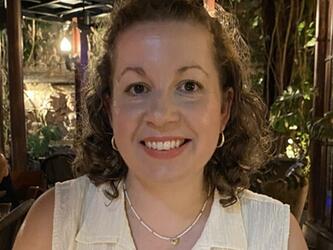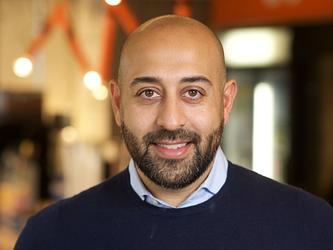Alison Johnstone – Research Hero
aLISON JOHNSTONe, INDEPENDENT RESEARCHER
Alison Johnstone is an independent researcher, working freelance to support market research agencies and consultants by bridging gaps in resourcing capacity and in-house skills.
During the pandemic, Johnstone also worked with small business owners, advising on research methods and design, to help them get the most out of doing their own market research.
Johnstone was nominated because “she’s a great example of an independent entrepreneur, who wants to work her way, to support herself, and she does this by stepping into numerous other businesses and giving them the support they need”.
Another nomination said: “Being a freelancer and emergency resource for research teams, she is exactly the kind of researcher who won’t qualify for a traditional professional recognition.”
What is the biggest challenge you have faced during your career?
Maintaining momentum and confidence during the Covid-19 pandemic. I started working for myself at the start of January 2020. Ten weeks into my new venture, the country shut down in response to a global pandemic that had already killed thousands of people around the world. People’s fear of unemployment rose sharply while expectations of their financial situation fell at its fastest rate on record. Christmas had eaten my savings, I wasn’t eligible for any government grant support, and I didn’t yet have a client base or portfolio of work.
My USP of being a face-to-face researcher in Scotland, skilled in remote working, was blown out the water. I didn’t secure another research contract until six months later. Those six months were lonely and disheartening. It didn’t take much time to start doubting I had the knowledge, skills or grit to be a successful freelance researcher.
Once I’d accepted I had to find motivators other than winning work and making money, I embarked on a schedule of webinars, networking meetings and online training. In hindsight, I owe my success now to those months.
I must thank the wonderful agency directors and research consultants that took a chance on a ‘newbie’ as we all emerged from the shadows of lockdown. They are the ones that restored by vim and vigour for market research and the industry, and I hope I have repaid their generosity.
What will be the next big trend or development in the research industry, and why?
It seems to me that research collaboratives are already on their way to being the next big thing for the industry. Over the last year I’ve spoken with a few networks regarding a collaborative working model: a collective of researchers that can create a competitive and user-centred solution by mobilising specialist consultants and coordinate teams to work on projects at pace and on demand. A sort of Avengers Assemble idea which seems to be a more flexible and responsive answer than the traditional research agency set up.
Coordination of projects and people will be important to making these collectives a success, as well as having enough researchers in the collective to deliver on specification, within budget and on time. The biggest danger in this way of working, to me, is a potential lack of space for less experienced or new researchers to break into the industry, get training and find their area of specialism. That responsibility may have to fall to full-service agencies and client-side teams.
The recent long period of slow work, remote work – no work – I think has given a lot of people in all industries time to think about how they could change the terms of what they do and for whom, to suit themselves as well as serve clients better.
Who inspires you as a researcher?
Small and midsize business owners. I am lucky enough to have a desk at a co-working space in a city centre and I am surrounded by people who are making it work for themselves. The enthusiasm and support I received from them and networking groups when I was setting up as a sole trader was tremendous.
During lockdown, I offered to help a couple of start-ups research their market. The founder of a film company asked how to demonstrate there was a strong enough appetite for their idea to secure development grand funding. They had applied before but were told by the funding committee that they needed to ‘quantify’ their findings to get the grant. They were stuck with what this meant and how to go about it. I was glad to help polish up a questionnaire they’d started drafting and advise on how to circulate the survey to maximise response rates.
Ninety-nine completes were returned and, in short, the survey stats secured the grant funding. It was a real buzz to know that my knowledge and skills actually helped an individual achieve success. Researchers don’t often get to see such positive and clear-cut outcomes from our services. Working with small and medium businesses can be personally rewarding if not financially.
View the full list of Research Heroes for 2021
In Spring 2022, MRS will be requesting nominations for Research Heroes 2022.

We hope you enjoyed this article.
Research Live is published by MRS.
The Market Research Society (MRS) exists to promote and protect the research sector, showcasing how research delivers impact for businesses and government.
Members of MRS enjoy many benefits including tailoured policy guidance, discounts on training and conferences, and access to member-only content.
For example, there's an archive of winning case studies from over a decade of MRS Awards.
Find out more about the benefits of joining MRS here.













0 Comments